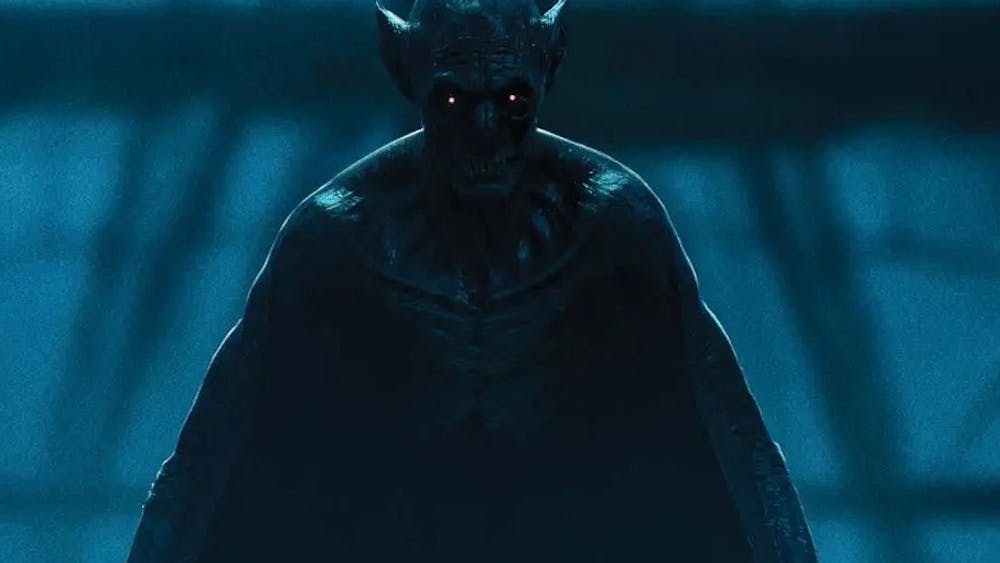A.I.: Artificial Intelligence" staggers the imagination. It prods the viewer to consider the big questions of human nature and mortality. It possesses a sweeping vision and a provocative intelligence.\nIt's certainly a flawed film, if only because its reach exceeds its grasp. "A.I" is a transcendent triumph of originality -- the most ambitious big-studio production made since "Apocalypse Now."\nThe seeds for "A.I" were sown decades ago when the late director Stanley Kubrick came across Brian Aldiss' plaintive short story "Super-Toys Last All Summer Long." He developed the material for a cinematic adaptation but lacked the technology to steer his vision onto the silver screen. \nIt wasn't until he saw Steven Spielberg's "Jurassic Park" in 1993 that he realized the film might be possible. He started a correspondence with Spielberg soon after, initially concerning the logistics of such an undertaking. Before he died, he passed the project onto Spielberg, suggesting that it was closer to his sensibilities.\nStylistically and philosophically, they seem like an odd couple. Kubrick's work is cold and analytical, often misanthropic -- in "Dr. Strangelove," he tosses out the thermonuclear annihilation of the human race as a joke.\nBy contrast, Spielberg is known for being warm and gooey, a master of emotional manipulation. \nKubrick made icy films perfectly composed from highly literate screenplays, whereas Spielberg pictures have always been big and affirmative.\nRemarkably though, Spielberg adheres closely to what one can only assume Kubrick intended. Nearly every frame of the film pays homage to the late master -- he recreates Kubrick's detached style with every perfectly enunciated syllable and every glossy surface. \n"A.I." is set in a future in which the greenhouse effect has suntanned millions to death and left coastal cities like New York and Venice submerged in the ocean. To conserve the finite resources available, humans have come to rely on robots or "mechas" to provide for many of their daily needs -- they tend to everything from nannying to prostitution.\nThe government has also implemented a system of population control which bans breeding without permission. Professor Hobby (William Hurt) of Cybertronics of New Jersey sees a market opportunity -- robot children capable of unending love for their parents.\nWithin two years, he's produced a prototype. He selects a family in the company to test the model. Grieving over a terminally ill son in cryogenic slumber, Monica (Frances O'Connor) immediately takes kindly to David (Haley Joel Osment) despite his awkward mannerisms and artificial complements.\nSoon, Monica decides to imprint herself on him -- meaning that he'll be unendingly affectionate toward her. He soon develops a creepy stalker-like obsession.\nStill, one can't help but to be sympathetic toward David -- his feeling is genuine but he lacks the frame of reference to express it in a normal way. In one of the film's many surreal moments, he breaks out into a shrill, forced burst of laughter at the dinner table.\nHis love for Monica -- whom he refers to as Mommy in one of the more heart-wrenching scenes -- presents the film's central philosophical thrust. David thinks he loves her and acts as if he loves her -- so does it matter if that's just his programming?\nAren't we all programmed in such a way by biological imperatives? Isn't coupling at bottom just a means to perpetuate our genetic code? Isn't filial affection just a means to preserve our offspring?\nIsn't "love" simply hard-wired to our subconscious mind?\nOnce Monica's real son is cured by a miracle of modern science, he soon grows resentful of David's presence. The situation reaches such a boiling point that Monica has to get rid of the porcelain child.\nShe can't bring herself to return him to the plant, where he'll be deactivated. So she instead leaves him in the woods to fend for himself. Convinced that Pinocchio is a how-to book, he sets out to find the "Blue Fairy." \nConsumed by all-encompassing love, David believes that Monica will take him back if he becomes a real boy. His quest leads him to a "Flesh Fair" in which resentful humans deactivate mechas in gaudy and spectacular ways.\nOne can see why Kubrick was initially attracted to the material -- to some extent, the film's biggest irony is that machines are more human than their organic counterparts. But like any great work of art in any medium, "A.I." doesn't simply make a point. On the contrary, it inspires thought and debate.\nOf course, it's not a masterpiece. Succumbing to his sentimental nature, Spielberg simply grafts a happy ending onto the work, detracting from the pathos of the story. Judging from the special effects, it's safe to assume that he had run out of money at that point.\nIt's unfortunate he didn't put more thought into the editing process -- barring a few heavy-handed moments, "A.I." ascends to high art.
Spielberg's 'A.I.' a near-masterpiece
Get stories like this in your inbox
Subscribe





